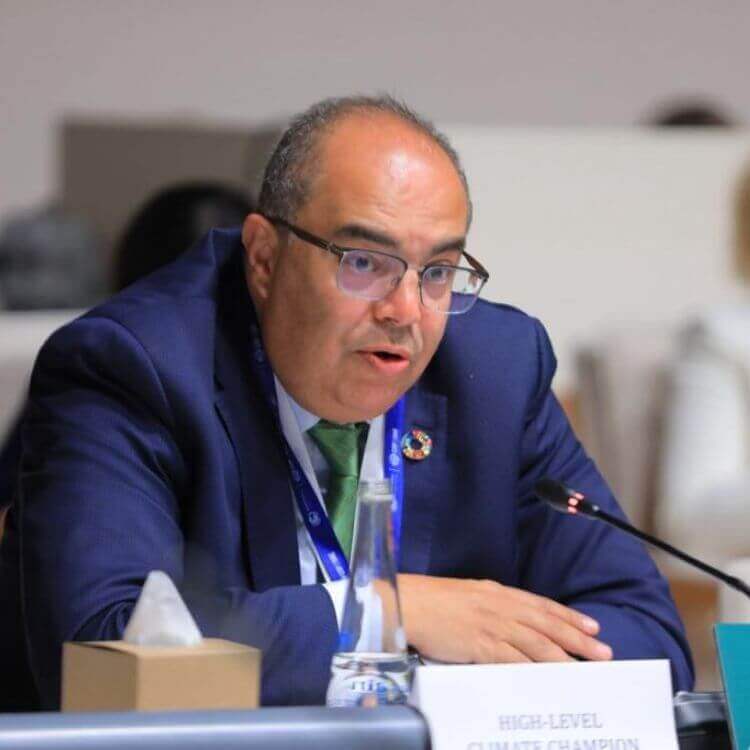Closing Climate Finance Gap Requires Mobilizing Finance from Public, Private, External & Domestic Resources
Dr. Mahmoud Mohieldin, UN Climate Change High Level Champion for Egypt and UN Special Envoy on Financing 2030 Sustainable Development Agenda, said that the role of the Loss and Damage Fund is not limited to providing finance but also to provide scientific and technological data and solutions to deal with the impacts of climate change.
This came during his participation in a session entitled “NPS delivering concrete solutions to address Loss and Damage” within the activities of COP28 in Dubai, with the participation of Saber Hussein Chowdhury, Special Envoy of the Prime Minister of Bangladesh for Climate Change and Environment, Razan Al Mubarak, Climate Champion of COP28, and a number of ministers and representatives of international organizations.
Mohieldin stated that the fund, which was launched during COP27 in Sharm El Sheikh and activated during COP28 in Dubai, is changing the dynamics of climate action, and highlighting the need to reconsider the mitigation and adaptation tracks.
Mohieldin stressed the need to accelerate climate action to avoid material losses of climate change worth $60 million per hour, along with losses of lives that cannot be valued or compensated.
The session witnessed a minute of mourning for the death of Salim Al Haq, a pioneer of global climate action, director of the International Centre for Climate Change and Development in Bangladesh and the UN Ambassador for Climate Champions.
During his participation in the session “Financing Transformation: Unlocking Climate Finance to Emerging Markets,” Mohieldin said that addressing the climate finance crisis essentially requires adopting a holistic approach that considers climate action an integral part of development action, and that climate finance is financing for various SDGs.
The climate champion emphasized the importance of mobilizing finance from its public, private, domestic and external resources in order to close the climate finance gap in developing countries, which is estimated at $2.4 trillion annually.
He stated that the UAE’s launch of a fund to finance climate action in developing countries and the success of the second replenishment of the Green Climate Fund (GCF) are positive steps regarding climate finance, he said that the implementation of climate action needs more such initiatives and efforts.
In the session “Green Cities: Stimulating Urbanization Financing,” Mohieldin said that cities are responsible for 80% of carbon emissions and are in the first row in the face of climate change.
He explained that many cities are threatened by desertification, deforestation and sea level rise, which requires promoting climate action at the city level and mobilizing finance for this purpose.
Mohieldin stated that climate activities in cities will contribute to reducing emissions and achieving climate adaptation at the same time, saying that cities, human settlements and infrastructure are some of the main areas of work of the Sharm El Sheikh Adaptation Agenda (SAA) launched during COP27, adding that the National Initiative for Smart Green Projects (NISGP) in Egypt is also concerned with promoting climate action at the local level, which includes cities and villages.




